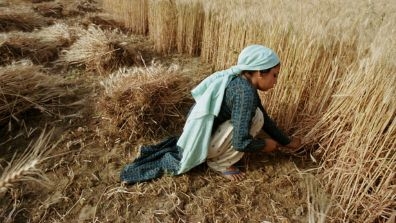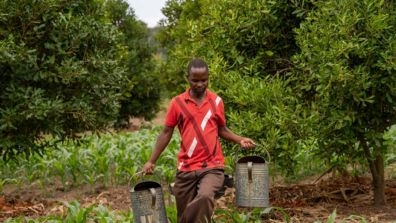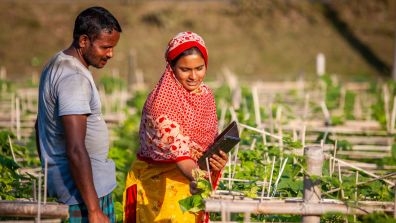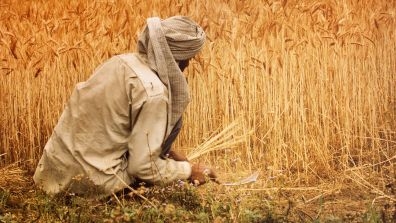By Hong-Won Yu, Director of Food Security at Global Affairs Canada, and Chair of the GAFSP (Global Agriculture & Food Security Program) Steering Committee; James Catto, Director of the Office of International Development Policy at the US Department of Treasury, co-Chair of the Steering Committee and Chair of the Private Sector Window Donor Committee; and Elhadji Adama Touré, Lead Agricultural Economist and GAFSP Program Manager.
Q 1: What in your opinion was GAFSP’s top achievement in 2023?
Hong-Won Yu: The Seventh Call for Proposals was a big achievement, with a total of $304 million allocated to countries and Producer Organizations. That high-quality programming provided much-needed financing to areas in need. At the same time, GAFSP advanced on the establishment of the Business Investment Financing Track (BIFT), which is exciting. The new financing track will help address constraints in access to finance for market-oriented smallholder farmers and early-stage agri-businesses.
James Catto: I think 2023 highlighted the value of GAFSP’s collective governance model, bringing stakeholders together. In times of urgency, institutional mechanisms and the strength of the governance model are tested. By supporting a collective response, GAFSP has demonstrated its value to the global food security space. Important internal reforms enabled it to move swiftly and deploy resources to respond to the global food crisis in an agile way, bringing the global community together to chart a good path forward.
Q2: What, in your opinion, is the key priority for GAFSP in 2024?
Hong-Won Yu: I am excited about the BIFT pilot implementation. It adds a new dimension to the GAFSP and addresses an important gap in mobilizing private sector financing. With the endorsement of the COP28 United Arab Emirates Declaration on Sustainable Agriculture, Resilient Food Systems and Climate Action there is an important opportunity to continue to make progress on better integrating our responses to the interlinked challenges of food security and climate change.
Adama Touré: The program has, over the last decade, been at the forefront of global challenges, including the climate, agriculture, and nutrition nexus, incorporating social issues like gender equality. GAFSP will remain a driver of innovation: promoting inclusive governance, facilitating access to finance and climate-smart technologies, and working in challenging contexts.
Q3: What needs to change to build the resilience of smallholder farmers and food systems in the world’s poorest countries and to enable us to meet the SDGs?
Hong-Won Yu: Change starts with country and local community ownership and leadership. But transformative investments in inclusive, sustainable, and resilient agri-food systems remain too small a proportion of climate financing. The international development community can formulate better responses to the need to integrate climate, agri-food system transformation, and food security objectives, while promoting gender equality.
James Catto: Fundamentally, food systems transformation is about much more than investment. It is about collective action, with all stakeholders working together; with countries presenting a clear vision of their transformation pathway, making the commitments, and providing the environment for reform that permit investments to flourish. We must sharpen our responses to food system transformation challenges and strengthen our collective capacity to operate in fragile spaces. This will ensure that the most vulnerable receive the support they need. Today, food insecurity falls most heavily on young women and girls in fragile contexts and amplifies other vulnerabilities, including health, gender-based violence, and human trafficking.
Adama Touré: GAFSP was set up in the wake of the 2007-2008 food crisis with the dedicated support of the G7 and G20 and can play an increasing role in connecting the North and South in the fight against hunger globally. GAFSP’s flexible financing instruments can also promote greater convergence between public and private sector investments, so that low-income countries can face up to the urgency of food security crises while accelerating the transformation to sustainable and resilient food systems.
Q5: What do you think makes GAFSP unique; what excites you about the Program?
Hong-Won Yu: The future of GAFSP excites me. Due to administrative reforms and boosted capacity, the Program is well positioned to address global challenges strategically. And, through the BIFT pilot, to engage in innovative partnerships with the private sector and other stakeholders. The other thing that excites me is the dedication of everyone involved in GAFSP and the diversity of perspectives provided in its discussions, while working towards a common purpose.
James Catto: GAFSP benefits from the experience, passion and dedication of the people who have been working with the Program for a long time. The emphasis on consensus-building and the focus on finding solutions is a hallmark of the Program. Rethinking engagement through the lenses of climate and food security, especially within fragile contexts, which will require more intentional focus on partnerships, is something I look forward to.
Q6: Hong-Won Yu, reflecting on your time as Co-Chair of GAFSP, what are you most proud of?
Those that really should be proud are the countries, Producer Organizations, and supervising entities on the front lines. The staff and leadership of the GAFSP should be proud of everything that they have accomplished over the last year, and I am grateful to have been able to be alongside them on this. The culture and ethos of GAFSP encompasses inclusive governance and building stakeholder consensus, and I encourage all GAFSP members to continue that.




